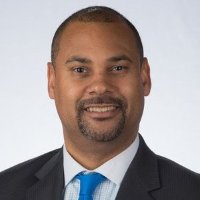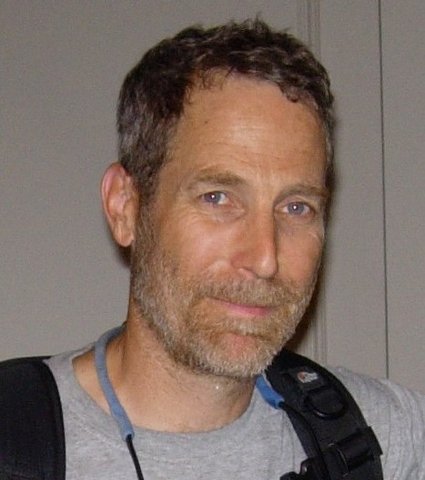
Enhancing the Climate Resilience of America’s Natural Resources
Friday, May 29 | 1:00 - 2:00pm
Location: Orchard Exhibit Hall North
Moderator: Vaughn Rinner, FASLA
Speakers: Mark Cason, Manager of Government Affairs, American Society of Landscape Architects; Michael Cox, Climate Change Advisor, EPA Region 10; Bryan Fiedorczyk, Clean Water State Revolving Fund Program Coordinator, EPA Region 10
Description:
In January, the ASLA Executive Committee was invited to a briefing on the Priority Agenda on Enhancing the Climate Resilience of America’s Natural Resources at the White House Council on Environmental Quality. The climate adaptation work that is underway at the federal level directly relates to the work of landscape architects, and the Executive Committee committed to ongoing support of the work of the Climate and Natural Resources Working Group in the implementation of the Priority Agenda.
Vaughn Rinner, FASLA was privileged to attend the briefing and will introduce and moderate the panel.
Mark Cason is attending the WASLA Conference on behalf of the ASLA Government Affairs staff. He will provide an overview of the Society federal priorities, and how the Society works with Congress, the White House, and federal agencies to advance policy issues related to green infrastructure, and climate change resiliency. The ASLA is a founding member of the EPA Green Infrastructure Collaborative.
Michael Cox will provide an overview of the President’s initiatives on Climate Change with an emphasis on EPA actions to mitigate climate change and help communities become more resilient to the impacts of climate change.
Bryan Fiedorczyk will provide a brief overview of EPA’s involvement in Green Infrastructure with a focus on activities EPA is currently engaged in, including the Green Infrastructure Collaborative and the new Green Infrastructure Guidebook, as well as Green Infrastructure webinars, resources, and tools.
History and Background
In November 2013, a few days after the first anniversary of Hurricane Sandy, President Obama issued Executive Order 13653 calling on Federal agencies to work with states, tribes, and local governments to improve preparedness for the impacts of a changing climate. Agencies with a responsibility for natural resources were given a specific charge, outlined in Section 3 of the Order, titled, Managing Lands and Waters for Climate Preparedness and Resilience. The Order directed federal agencies with responsibility for managing natural resources to “complete an inventory and assessment of proposed and completed changes to their land- and water-related policies, programs, and regulations necessary to make the Nation's watersheds, natural resources, and ecosystems, and the communities and economies that depend on them, more resilient in the face of a changing climate.
The interagency Council on Climate Change Preparedness and Resilience, established by Section 6 of the Order, convened a Climate and Natural Resources Working Group (CNRWG) to complete the inventory, assessment, and plan called for in Section 3 of the Order. The CNRWG includes:
- Department of Defense
- Department of Interior
- Department of Agriculture
- Environmental Protection Agency
- National Oceanic and Atmospheric Administration
- Federal Emergency Management Agency
- U.S. Army Corps of Engineers
The Priority Agenda for Enhancing the Climate Resilience of America’s Natural Resources is the result of the work of the CNRWG. The Agenda builds upon the robust climate change adaptation work already accomplished by federal agencies and identifies significant actions moving forward. The Agenda identifies four priority strategies to make the Nation’s natural resources more resilient to a changing climate:
- Foster climate-resilient lands and water.
- Manage and enhance U.S. carbon sinks.
- Enhance community preparedness and resilience by utilizing and sustaining natural resources.
- Modernize federal programs, investments, and delivery of services to build resilience and enhance sequestration of biological carbon.
The document is available by clicking here.
Moderator Bio: Vaughn Rinner, FASLA
Vaughn Rinner, FASLA is a resident of Seattle, having moved to Washington after 40 years in private practice in Virginia and New York.
Speaker Bio: Mark Cason, Manager of Government Affairs, American Society of Landscape Architects
 Mark Cason is the Government Affairs Manager at the American Society of Landscape Architects. His federal affairs portfolio includes: pollinators, green infrastructure, stormwater, and other water quantity and quality issues. Mark works with key congressional and federal agencies to foster the Society’s federal and regulatory priorities. With over 10 years of congressional and government affairs expertise, Mark’s experience include tenures on Capitol Hill and professional trade associations. Mark Cason is the Government Affairs Manager at the American Society of Landscape Architects. His federal affairs portfolio includes: pollinators, green infrastructure, stormwater, and other water quantity and quality issues. Mark works with key congressional and federal agencies to foster the Society’s federal and regulatory priorities. With over 10 years of congressional and government affairs expertise, Mark’s experience include tenures on Capitol Hill and professional trade associations.
Speaker Bio: Michael Cox, Climate Change Advisor, EPA Region 10
 Michael Cox holds a BS from Huxley College at Western Washington University and a MPH from the University of Michigan. He is currently the Climate Change Advisor for EPA's Region 10 office in Seattle. His main tasks are to help EPA programs integrate climate change into how they do their work and coordinate efforts with EPA partners. Michael has over 25 years of environmental experience with EPA, UNICEF, National Wildlife Federation, and the City of Seattle. His past work included working on issues related to toxics in the Columbia River, toxics and nutrients in Puget Sound, and nitrate contamination in groundwater and drinking water in Yakima County. Michael Cox holds a BS from Huxley College at Western Washington University and a MPH from the University of Michigan. He is currently the Climate Change Advisor for EPA's Region 10 office in Seattle. His main tasks are to help EPA programs integrate climate change into how they do their work and coordinate efforts with EPA partners. Michael has over 25 years of environmental experience with EPA, UNICEF, National Wildlife Federation, and the City of Seattle. His past work included working on issues related to toxics in the Columbia River, toxics and nutrients in Puget Sound, and nitrate contamination in groundwater and drinking water in Yakima County.
Speaker Bio: Bryan Fiedorczyk, Clean Water State Revolving Fund Program Coordinator, EPA Region 10
 Bryan Fiedorczyk serves as Program Coordinator for EPA’s Region 10, covering two state’s Clean Water State Revolving Fund (CWSRF) programs. These programs fund community wastewater treatment and stormwater control projects. At EPA, Bryan has also been involved with the regional Sustainable Infrastructure Team and National Green Infrastructure Workgroup. He has over 15 years of experience in community planning and environmental analysis, and previously was an American Institute of Certified Planner and board member of the Washington Chapter of the American Planning Association. Bryan currently serves as the President of Sustainable West Seattle and been involved in community level green infrastructure projects. Bryan Fiedorczyk serves as Program Coordinator for EPA’s Region 10, covering two state’s Clean Water State Revolving Fund (CWSRF) programs. These programs fund community wastewater treatment and stormwater control projects. At EPA, Bryan has also been involved with the regional Sustainable Infrastructure Team and National Green Infrastructure Workgroup. He has over 15 years of experience in community planning and environmental analysis, and previously was an American Institute of Certified Planner and board member of the Washington Chapter of the American Planning Association. Bryan currently serves as the President of Sustainable West Seattle and been involved in community level green infrastructure projects.
|